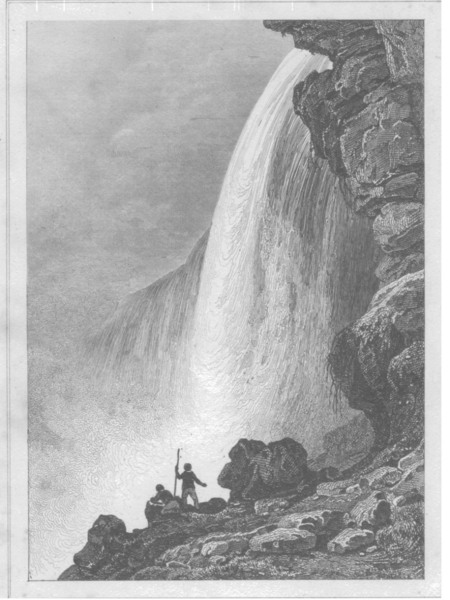But here is an artist. He desires to paint you the dreamiest, shadiest, quietest, most enchanting bit of romantic landscape in all the valley of the Saco. What is the chief element he employs? There stand his trees, each with a hollow trunk, as if a hermit and a crucifix were within; and here sleeps his meadow, and there sleep his cattle; and up from yonder cottage goes a sleepy smoke. Deep into distant woodlands winds a mazy way, reaching to overlapping spurs of mountains bathed in their hill-side blue. But though the picture lies thus tranced, and though this pine-tree shakes down its sighs like leaves upon this shepherd's head, yet all were vain, unless the shepherd's eye were fixed upon the magic stream before him. Go visit the Prairies in June, when for scores on scores of miles you wade knee-deep among Tiger-lilies—what is the one charm wanting?—Water—there is not a drop of water there! Were Niagara but a cataract of sand, would you travel your thousand miles to see it? - MD***
I was born in the city of Niagara Falls, on the U.S. side, and like to think of Melville standing on the unfenced precipice of the great cataract, caught up in the roar of it. He would have seen it back in the pure days before much of the flood was siphoned off by engineers bent on "preserving" the natural wonder and, more to the point, powering one of the great hydroelectric plants in the world. I envy that bastard Melville. Because he was right. The water's the thing.
Though I live 1,200 miles away, that Niagara River of my childhood still pervades my dreams. I dream the river is somehow sweeping me down Center Street toward the precipice of the falls. Or I dream of swan diving from the tops of tall chestnuts growing along the banks into the silver gray waters. Or of swimming under the surface of the river for a long, long way, trying to reach the Canadian shore from the U.S. side unseen, desperately trying to escape those who would spot, capture and imprison me. Though it's been decades since I lived there, I couldn't shake the Niagara if I wanted, anymore than I could drain my veins and expect to live.
I believe this is not a literary convention, symbol or archetype. Or, rather, it's not just those things. It's somehow baked in at a primal, visceral level. We shouldn't forget that. Whatever the scholars think, Melville did not write only on a symbolic, abstract plane. The water was far too real within him.


No comments:
Post a Comment